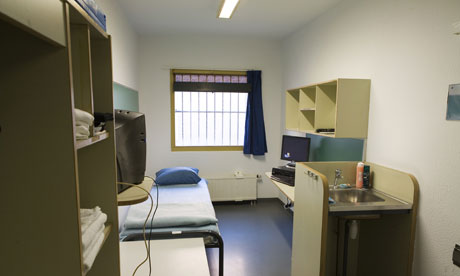ACP countries follow Ramotar’s lead - stand in solidarity with Bouterse against EU boycott
The African Caribbean and Pacific (ACP) sugar-producing States, inclusive of Suriname and the Dominican Republic, have unanimously agreed to follow the lead of Guyana’s President Donald Ramotar in protest of a European Union boycott of a major forum in Suriname.
The EU has taken a decision led by a Dutch Parliamentarian to not have the EU/ACP Assembly be hosted in Suriname in protest of Amnesty legislation recently passed in The Netherlands.

Guyana’s Head of State Donald Ramotar (right) in solidarity with his Surinamese counterpart, Desi Bouterse
Representatives of the ACP Countries met in Denmark on Friday, last, where the matter was discussed and unanimously agreed that the ACP countries would stand in solidarity with Surinamese president Desi Bouterse.
The EU/ACP is the largest multilateral meeting after the General Assembly of the United Nations, and would bring close to 1,000 parliamentarians from the European Union, Africa, the Caribbean and Pacific States, to Suriname.
The decision by the EU’s Parliament stems from amnesty law passed in Suriname’s National Assembly last April, that pardons Suriname’s president Desi Bouterse for crimes committed under his earlier military rule in 1982.
Head of State Donald Ramotar this past week told this publication that Guyana will be opposed to such a move, adding that if the European Union respects democracy then it would respect the will of the Surinamese people and their decisions.
Kaieteur News understands that the European members of respective parliaments, opposed to the confab being held in Suriname, are also unopposed to Bouterse joining the meeting if hosted in another country, hence Guyana was suggested.
According to reports from the EU, there is the belief that Bouterse is seeking to use such meetings in Suriname as a means of demonstrating to those opposed to him that he still gains international respect.
According to international reports, Parmessar Rabin, leader of the Parliamentary delegation in Denmark, has in recent days been lobbying for the ACP countries to get behind Suriname.
It is Rabin who is being credited with forging unity among the former colonies in protest of the EU’s decision.
At the plenary sessions of last Friday’s meeting in Denmark, co-president of the ACP-EU, Musikari Kombo, tasked to communicate the position of the ACP countries to the EU, said that if there is no cooperation from the European side, the joint meeting will not take place in November.
The EU’s Parliament now suggests moving the venue to either Curacao or Aruba should Guyana not be available.
Guyana had been first proposed as an alternative to hosting the meeting in Suriname, but President Ramotar is not entertaining the idea, insisting that the meeting must be held in Suriname, and the will of the Surinamese people with the election of their leader must be respected.
Europarliamentarian Toine Manders who had spearheaded the move against hosting the meeting in Suriname, said it wouldn’t bode well for EU-ACP relations if the ACP parliamentarians decide that they do support Suriname.
“There will be no meeting without the Europarliamentarians, so we should choose a different host country. It would be bad for our relations if the meeting isn’t held at all,” he said, hinting that it is Europe who is footing the bill. “The cost of this meeting is in the millions,” he stressed.
The controversial Amnesty Law was approved by Suriname’s National Assembly, amidst local and international calls not to do so. The law pardons President Bouterse for crimes committed under his earlier military rule, including the December 8, 1982 murders of 15 men.
Holland, with whom Bouterse has a strained relationship, has since the law was approved, said that Suriname would feel the backlash. Development aid was ceased and the country is being boycotted.
The Dutch Europarliamentarians say it would go against their principles if they would attend the meeting in Suriname, shake hands with Bouterse, and listen to him addressing the gathering.


